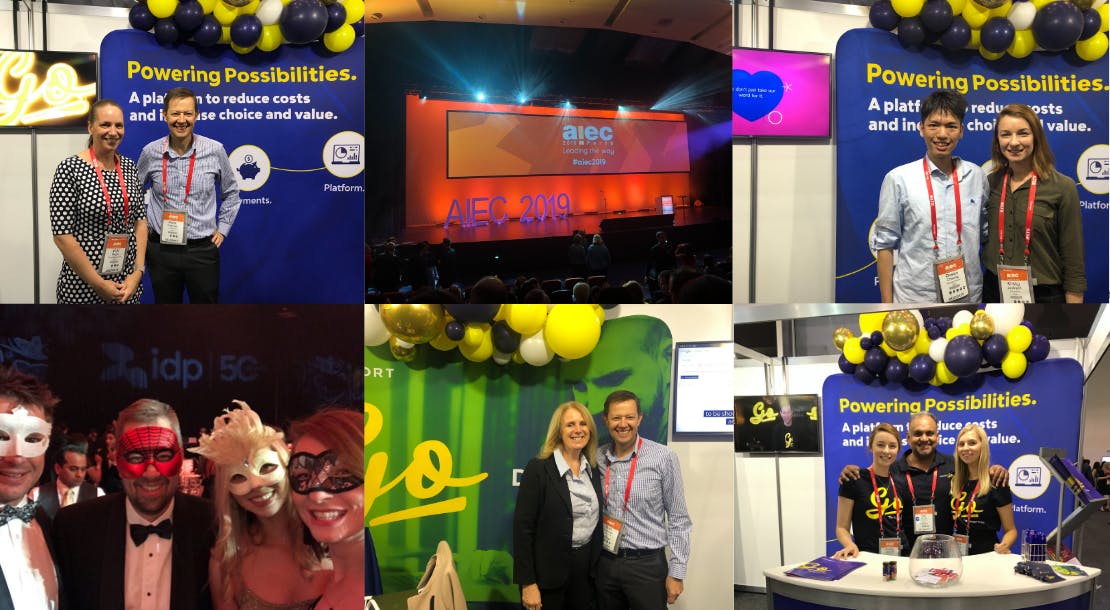Here are four key takeaways from this year’s conference.
Got to get that job
Employability was a key topic of discussion across the conference. There’s a growing recognition that we need to pay more attention to the whole customer life cycle, not just getting international students into our education system. How can we, as a region, better support students in the next phase of their study journey, and the next phase of their career?
According to the International Education Association of Australia’s Global Perspectives on International Student Employability report, employability has become a key driver in international education. More than half of the students who responded to IDP Connect’s Digital International Student Survey 2019 cited employment and employability as their motivation for studying abroad.
Students and their families are increasingly calling on education providers to deliver employability as a return on their investment. Overcoming the barriers to international student employability — language skills, work experience in the host market, insufficient professional networks and employer perceptions — needs to be a shared concern for all stakeholders in international education.
Of course, this has been a popular topic of discussion in the international education industry for a long time, but it feels like it’s gaining momentum now. Cohort Go held an executive roundtable dinner on the second night of the conference, and everybody in that room — including accommodation providers, education providers and industry representatives — agreed that we need to stop talking about what needs to be done to make international students more employable and start seeing some action.
At Cohort Go, we’re at the other end of that journey for the customer. Students interact with us at an early stage, when they’re preparing for international travel and when they’re first coming into the country. But it’s still important for us to practice what we preach, and no fewer than 13 of our 40 team members are international students. Without their skills, our business would potentially have to move offshore in order to innovate and thrive. That just shows you how vital international students can be to Australian businesses.
Meet the parents
While students believe they are in charge of their own decision-making process when it comes to choosing an international education provider, parents continue to wield considerable influence.
New research by IDP and Austrade released at AIEC revealed that parents have the greatest influence on determining where a student will study overseas, while students tend to have the final say on what they study.
More than 2,300 students and 720 parents participated in the Student Buyer Behaviour and inaugural Parents of International Students’ Buyer Behaviour studies. The research found that parents are likely to take part in every step of the process when their child decides to study overseas, including meeting with education agents.
The research also showed that parents and students have different priorities when it comes to deciding where to study. Unsurprisingly, safety is the primary concern for parents, while the aforementioned employability, tuition fees and living costs are the main concerns for students.
The research reaffirms Cohort Go’s approach to communicating with students. While the students themselves are our primary focus, we always ensure that we back up our communications with proof points about safety and security that touch on their parents’ priorities. Given the parents’ influence on the decision-making process, it’s absolutely imperative that you consider and cater to their concerns.
Sustainability matters
As the generation that spawned the Climate Strike prepares for tertiary study, the international education sector has to do more than pay lip service to sustainability.
Amy Baker, managing director and co-founder of The PIE (Professionals in International Education), chaired an important session on the role of international education in the climate crisis, and the need to develop more sustainable business models. From this session, it emerged that IDP will be adding a question about sustainability to future Student Buyer Behaviour surveys.
For a sector that’s so heavily dependent on air travel, these are important conversations to have. Do you need to get on a plane to go to that conference, or is there another way to get there? Can we replace face-to-face meetings and expos with digital experiences?
Massey University in New Zealand was mentioned as an example of an education provider that has actually partnered with an airline, Air New Zealand, to offset their carbon emissions for staff travel.
The session also explored the Times Higher Education (THE) University Impact Rankings, which is the only global ranking of universities against the United Nations’ Sustainable Development Goals. These rankings were only released for the first time this year, but these sorts of concerns certainly have the potential to shape sustainability-savvy students’ decisions in the future.
A number of polls were run through the AIEC mobile app throughout the conference, and one of them asked if people had offset their carbon footprint on their flights to the event. The overwhelming majority answered ‘No’, so the industry obviously still has a lot of work to do in adopting more sustainable practices.
Changing the narrative
Finally, I found myself involved in a number of conversations throughout the conference about the negative narratives surrounding international education, and how we can change public perception.
Unfortunately, the stories that the public tends to see about the sector are the unflattering ones. The reality is that it only takes one unsavoury agent fleecing money from an international student to make sensational headlines and shape the public image of our profession.
Professor Sarah Todd, Griffith University’s Vice President (Global), was asked about how we can combat this in one of her sessions. She replied that we have a duty to share positive stories. How else is the public going to discover the benefits of international education if we don’t tell them about it?
For Cohort Go, with our access to international students, this advice really resonated for me. The success of these students doesn’t just benefit them — it can actually benefit the entire industry. We have a responsibility to give these students a platform to share their positive stories, so how can we do that better?
Watch this space…

